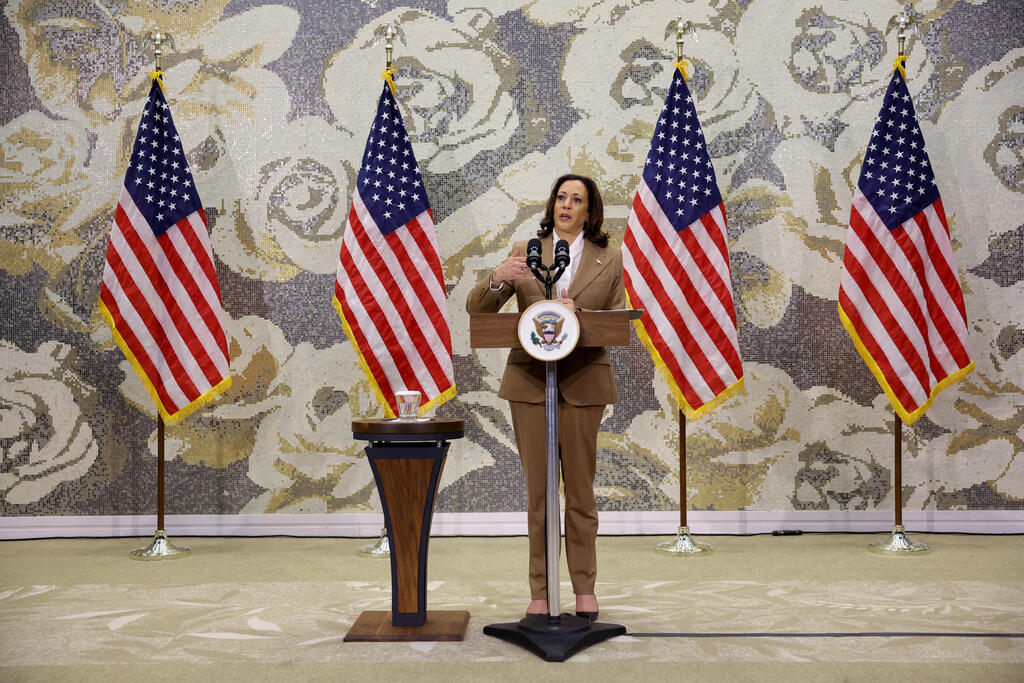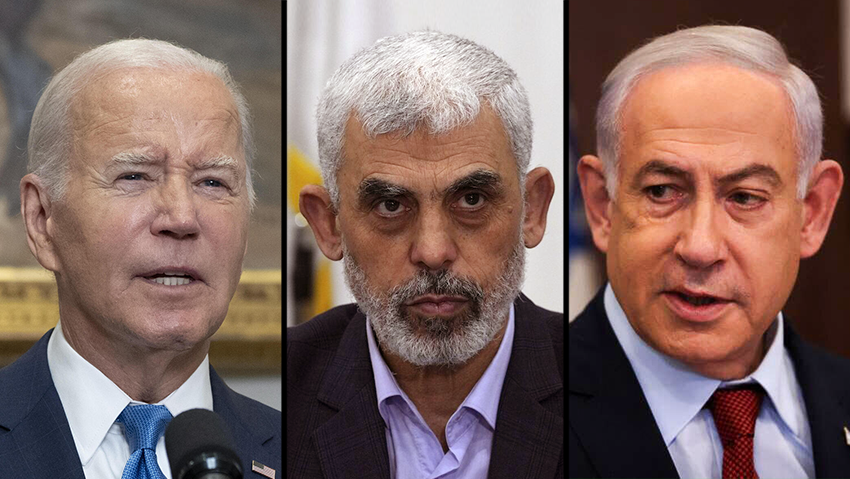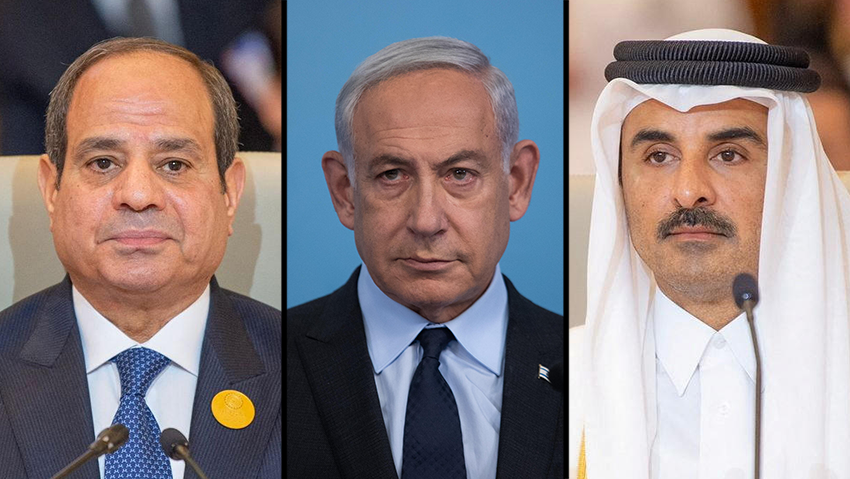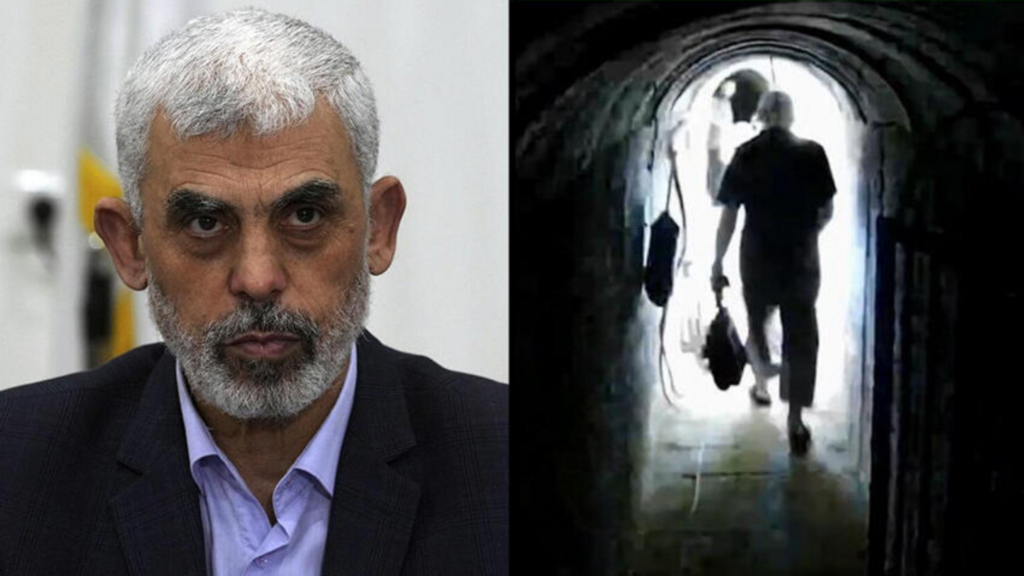Getting your Trinity Audio player ready...
The U.S. has vetoed all proposals in the UN Security Council calling for an immediate cease-fire in the current war on Hamas in Gaza, but now it has presented its own resolution which calls for an immediate cease-fire and the release of all the hostages. Since it was initially introduced two weeks ago, it has been amended three times.
Read more:
According to Reuters, the U.S. submitted the draft two weeks ago, at the same time as it vetoes of Algeria's proposal calling for an immediate cease-fire. Since then, the U.S. has changed the wording of the proposal three times. The latest changes are now more aligned with the calls of senior U.S. administration officials for a cease-fire, including Vice President Kamala Harris - this after the original version supported a "truce" or "temporary cease-fire.
"Given the immense scale of suffering in Gaza, there must be an immediate cease-fire, for at least the next six weeks, which is what is currently on the table,” Harris said on Sunday at an event in Selma, Alabama.
4 View gallery


Vice President Kamala Harris has called for an immediate cease-fire
(Photo: Reuters/Amr Alfiky)
“Hamas claims it wants a ceasefire. Well, there is a deal on the table. And as we have said, Hamas needs to agree to that deal. Let’s get a ceasefire. Let’s reunite the hostages with their families. And let’s provide immediate relief to the people of Gaza,” she said. People in Gaza are starving. The conditions are inhumane,” she added.
"The Israeli government must do more to significantly increase the flow of aid. No excuses,” she said.
The Biden administration has vetoed the three resolutions calling for an immediate cease-fire, claiming that would undermine the Egyptian and Qatari mediation efforts, and noting that they did not mention the hostages. Recently, President Biden said that the cease-fire is in Hamas' hands.
4 View gallery


Biden, Sinwar and Netanyahu: U.S. submits resolution for Gaza cease-fire
(Photo: Yonatan Zindel, AP, EPA / CHRIS KLEPONIS / POOL)
The wording change comes against the backdrop of an internal American campaign by the administration and its desire to be seen as associated with supporting and promoting a cease-fire. Officials in Israel said that they do not see this as "an alarming development or an erosion of the U.S. position." Russia is expected to veto the American proposal due to the condemnation of Hamas.
Reportedly, the Americans are "tired" of being associated with vetoes and accusations that the U.S. is blocking the Security Council's work.
For the time being, the U.S. does not intend to bring the proposal to a vote in the Security Council, in order to allow sufficient time for negotiations and discussions on the submitted draft, according to Reuters. For the proposed resolution to pass in the UN Security Council, nine countries need to support it, without any of the five permanent member countries vetoing the resolution.
"This is an unbearable period of time. I don't think anyone believed that, after five months, the families, the citizens of the country, would still be held hostage," Ofri Bibas Levy, sister of hostage Yarden Bibas, said, describing the feelings of the families of the hostages, as negotiations toward a hostage exchange are held up by Hamas' pertinacious refusals. "The feelings make it harder to bear. It's a feeling of great distress, worry, fearing for their lives. I wonder when it will end and how."
The U.S. trust-building plan
Meanwhile, amid efforts to mediate a deal to release the hostages and finalize a cease-fire before Ramadan, the Wall Street Journal reported that the U.S., Egypt and Qatar offered Israel and Hamas to agree to a short pause in fighting. This temporary pause of hostilities could last only a few days, but may eventually lead to a longer cease-fire.
4 View gallery


U.S., Egypt, and Qatar called on Israel and Hamas to agree to a short pause in fighting
(Photo: Reuters / Saudi Press Agency/Handout, Reuters / Saudi Press Agency/Handout, Alex Kolomoisky)
The mediators believe this is a trust-building step since this pause may prove to both sides that they are serious about a longer cease-fire, as talks between Israel and the terror organization remain stalled. However, Israeli officials believe that Hamas is not interested in an agreement and prefers to escalate tensions in the region toward Ramadan. Sources in Israel said in recent days that Hamas intends "to ignite the area" during Ramadan, hoping to "unify the fronts" against Israel.
After Egyptian sources disclosed that no breakthrough had been reached, U.S. officials expressed skepticism concerning the true intentions of the terrorist organization. The Americans claim that Hamas is avoiding responding to some "legitimate demands," such as the Israeli demand to receive a list of names of the hostages expected to be released in the deal.
4 View gallery


Hamas leader Yahya Sinwar remains fortified in his position in negotiations
(Photo: IDF Spokesperson's Unit, AP)
For now, at least in the official statements of the terrorist organization, it has not changed its position. Hamas demands an absolute cessation of hostilities and an Israeli commitment to allow the residents of northern Gaza to return to their homes.


